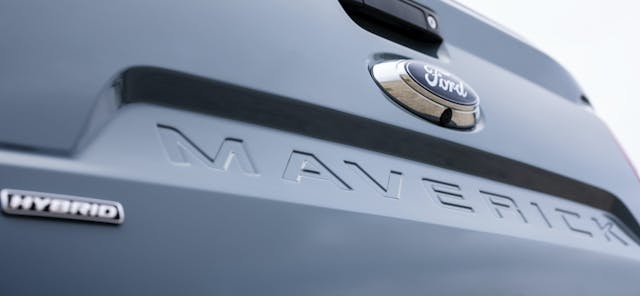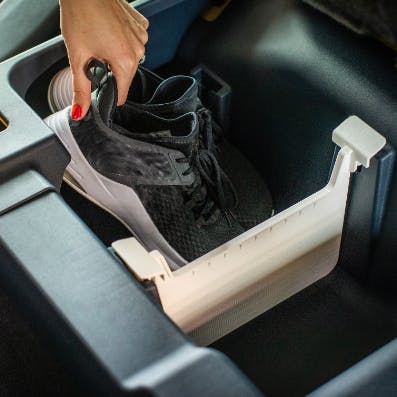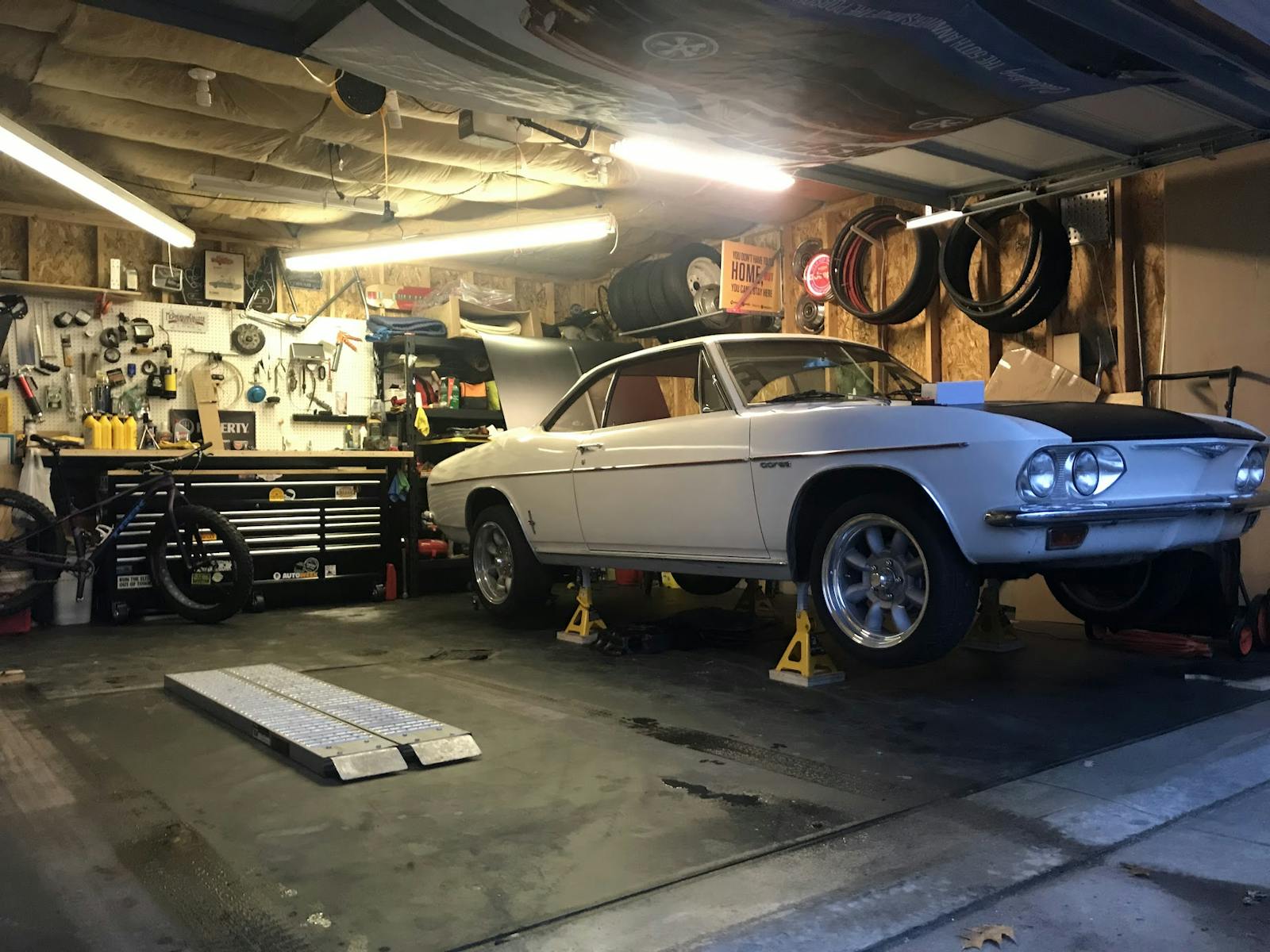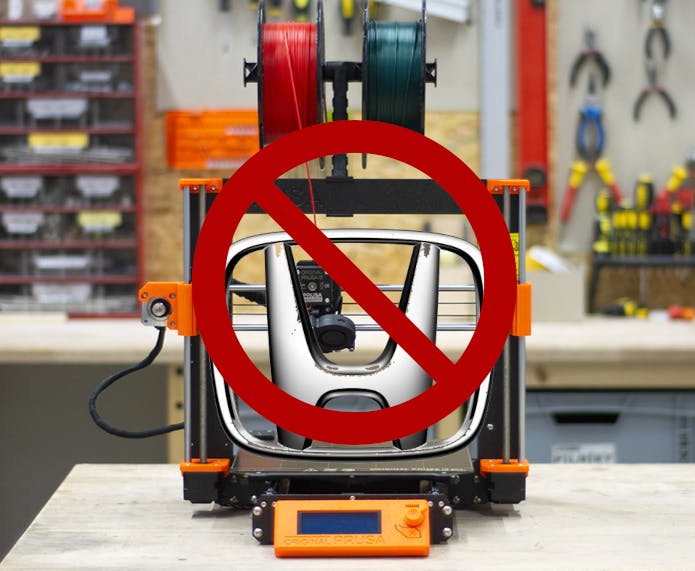Media | Articles
Ford embraces open-source 3D printing while Honda Europe appears to crack down

When 3D printing (also known as additive manufacturing) was first introduced, the automotive industry embraced it. At first, the primary application was to facilitate rapid prototyping. Later came short runs of production and replacement parts for limited-edition vehicles; Porsche, for example, uses laser-sintered powder deposition to make hard metal parts, that are no longer otherwise available, for the 959 supercar.
Now that filament- and resin-based 3D printers have proliferated by the hundreds of thousands, it’s not just carmakers that are using additive manufacturing. Car owners are getting in on it, too. Ford is taking an open-arms approach, making CAD files for the new Maverick pickup available to the public. Think cargo dividers, console attachments, and the like.

Not every automaker is taking such a welcoming approach. Honda, or at least its Europe business unit, is exercising trademark rights to suppress the making of user printed parts and accessories for their vehicles.
There are a number of public repositories, like Thingiverse, where you can download ready-to-print files that have been uploaded by hobbyists and engineers. Downloads can be either free or require purchase.
Prague-based Josef Prusa operates his own repository, Printables. Recently, reports on Reddit started appearing about Honda-related files being deleted from the Printables site. Those reports were confirmed by Jo Prusa himself:
Marketplace
Buy and sell classics with confidence
“We are working with other companies to make them realize this should be embraced and not hunted down,” Prusa said. 3D models that use the word “Honda” in their filenames or descriptions posted prior to March 30 of this year were deleted. These files included code for making latches, brackets, bushings, washer fluid caps, and various handles. Some were replacements for Honda-authorized parts, while others were completely original and not offered by Honda.
Let’s get a few things straight about the world of 3D printing. While most of the original 3D printer machines—whether they were filament-, resin-, or powder-based—were developed and sold by commercial industrial firms, the do-it-yourself “maker” community quickly adopted the technology. Given that 3D printers are digitally controlled, it’s not surprising that these DIY folks also embraced the open-source ethos prevalent among software developers.

While early DIY printers were pretty much the definition of hobbyist toys, requiring more than a bit of fiddling and almost constant upgrades, Prusa’s first i3 filament printer in 2010 was a major step in the proliferation of the technology. Capable of print quality equal to or better than that of printers costing two and three times as much money, for about $1000 assembled (also available less expensively as a kit) the Prusa i3 made 3D printing accessible to not just hobbyists but also small- and medium-sized businesses. Setting up a small “farm” of Prusa printers suddenly became a reasonable alternative to short-run injection molding, for example.
Rather than patent his design that used off-the-shelf and printed components, Prusa decided to popularize it by making the his printer open-source, and he published the CAD files, confident that the company he founded could succeed, as he put it, “by making the best Prusa printer there is.” As expected, the design was quickly knocked off by manufacturers of varying quality, and today you can buy a serviceable Prusa clone from China for as little as two or three hundred dollars. Jo Prusa’s business plan, however, has worked despite the competition. His company now employs about 600 people in Prague and ships about 100,000 i3, Prusa Mini, and Prusa resin printers a year.

Responding to an inquiry from The Drive, the Prusa company issued a statement confirming the takedown of Honda-related materials in an email: “I can confirm to you that we have received a letter from a lawyer representing Honda, informing us that we were required to remove any model which used ‘Honda’ in the listing, the model itself, or one of several trademarks/logos also associated with Honda. This will also be related to the naming of the files it self (sic), as for Honda this would be considered as a violation of their trademark/patents.” When asked about the matter, Honda Motors North America said that the takedown notice was issued by Honda Motors Europe, which so far has not commented on the issue.

Additionally, responding to a comment made on the Prusa forums site, a Prusa company employee said that Honda had sent them a “huge legal document” that covered every 3D model that the company wanted wiped. While this would seem to be a trademark issue, the demand letter apparently didn’t just mention items decorated with Honda logos and trademarks, but also requested that items with specific shapes and dimensions, like the aforementioned washer fluid caps, be deleted.
It’s possible that other repositories received demand letters from Honda but as of right now, Honda-related parts are still available on Thingiverse and other sites.
Meanwhile, Ford is encouraging owners of the new Maverick pickup to print their own accessories. The automaker is even making proprietary design files available to the public to aid in the design of those accessories. With the Maverick, Ford introduced FITS, the Ford Integrated Tether System, essentially standardized bracket receptacles so the center console and under-seat storage bins can be customized with user made items like cellphone mounts and cup holders as well as factory Ford accessories. Having promised to do so during the Maverick’s launch, now Ford has officially released a pair of CAD files, in STP, IG, and CATpart formats, along with design guidelines, so you can make accessories that mate with FITS. Maverick design director Scott Anderson told The Drive, “I always find that people are pretty ingenious on their own and they come up with solutions that are great. So why don’t we enable them to do that?”

So far, Maverick enthusiasts have uploaded a variety of accessories to the Thingiverse repository, including cup, phone, and eyeglass holders, grocery bag hooks, underseat dividers, adapters to expand FITS to other storage areas of the Maverick and even FITS compatible receptacles for other brands of vehicles. Over at Printables, you can download an umbrella holder and even a bracket to hold your favorite Pez dispenser. This 3D print shop has even come up with a simple yet clever adapter to use FITS brackets with the Maverick’s bed rail system.
Time will tell whether the industry follows Ford’s inclusive example or decides to take Honda Europe’s more restrictive approach, but information wants to be free and people want to be creative. Whether or not an automaker decides to publish CAD files, you can be sure that—as they have done with earlier technologies—car enthusiasts will make their own parts and accessories no matter what that vehicle’s manufacturer decides. 3D printing and other forms of rapid manufacturing like laser engraver/cutters and CNC routers/mills simply make those dreams easier than ever to develop, share, and produce.






